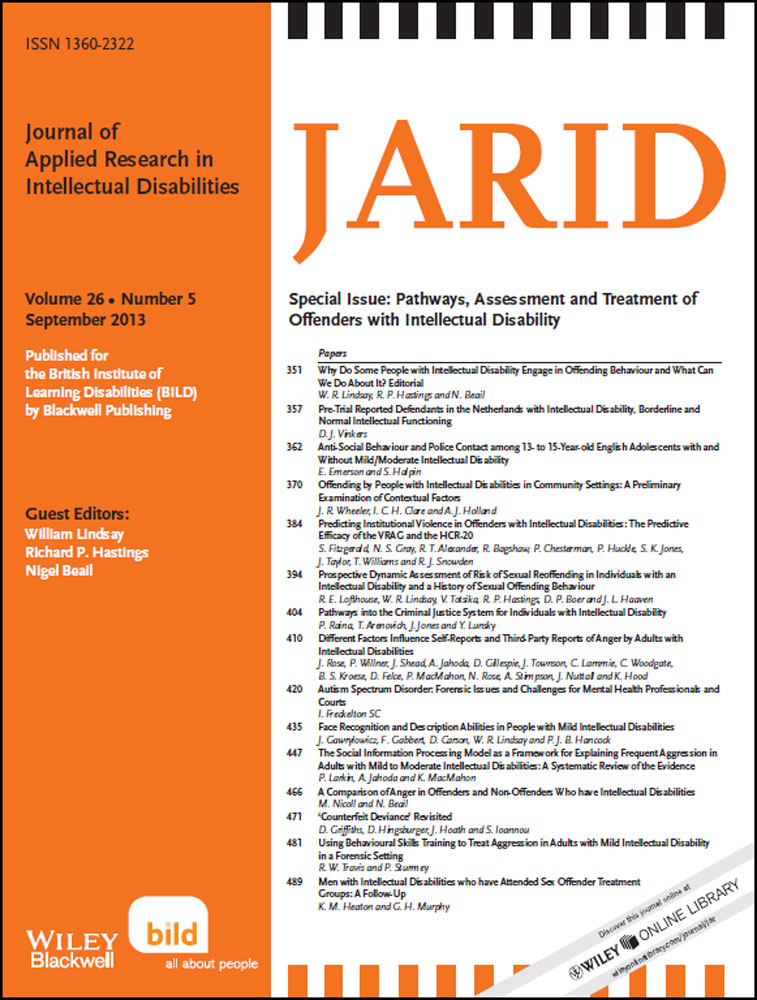Using Behavioural Skills Training to Treat Aggression in Adults with Mild Intellectual Disability in a Forensic Setting
Abstract
Background
Previous studies of anger management in people with intellectual disability failed to control for the effects of the number of provocative stimuli presented and lacked direct measures of behaviour and treatment integrity data.
Methods
This experiment systematically assessed and presented discriminative stimuli for aggressive behaviour, taught alternative behaviour in response to discriminative stimuli for aggressive behaviour and used behavioural skills training with three adults with mild intellectual disability.
Results
Following behavioural skills training, the adult's percentage of aggressive responses declined and replacement responses increased in response to provocative stimuli. Treatment gains generalized to novel antecedent events, novel staff and novel settings and were socially valid. After intervention, community trips increased for all three participants.
Conclusions
Behavioural skills training to teach alternate behaviour to aggression with carefully planned procedures to promote generalization caused a socially valid increase in alternate behaviour and a socially valid decrease in aggression.




